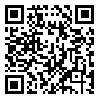BibTeX | RIS | EndNote | Medlars | ProCite | Reference Manager | RefWorks
Send citation to:
URL: http://refahj.uswr.ac.ir/article-1-2041-en.html
Objectives: The present paper attempts at examining the relationships which exist between the article’s main concepts namely folklore, cultural capital and tourism. However, cultural capital originally was coined by French sociologist Pierre Bordure to include non-economic factors education in particular that may be responsible for poverty and other negative characteristics of the poor, the concept later on was expanded to cover attitudes, characters, and customs. As a result folklore of a society may also be regarded as a form of cultural capital. The article then deals with the importance of tourism especially due to globalization experienced by all cultures around the world. Today tourism is regarded as the most important source of national income. Both income and occupation multipliers embedded in tourism will serve as positive factors facilitating development. Finally the article Reviews however briefly the Iran’s case as a society that is very rich in various forms of tourism’s attractions which makes her desirable as a tourism destination. Method: The article is based on literature review. As result it may be regarded as an analytical and descriptive research, aiming to enhance the existing familiarity with tourism and a number of other important concepts. Results: In Iran, tourism industry is a neglected domain. Thus the most important objective of tourism industry is to emphasize the importance of such a domain as far as development is concerned. The other important objective is to enhance the general public’s knowledge concerning the role of tourism as far as income and job creation are involved. Despite the fact that the article is based on a review of literature a number of findings may be mentioned. First, tourism industry at the time of economic globalization and the coming of automated industries that create very limited number of jobs, may act as the most reliable source of job creation. Second, tourism when carefully and consciously planned is a nature friendly undertaking. Thus, third it may be regarded as a component of sustainable development.
Received: 2015/09/2 | Accepted: 2015/09/2 | Published: 2015/09/2
| Rights and permissions | |
 |
This work is licensed under a Creative Commons Attribution-NonCommercial 4.0 International License. |





